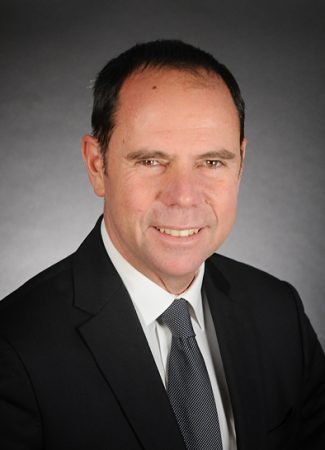There are definitely two opposing sides in the European debate on the electricity market reform…
Before going into the details of the European political-war context, it is worth reviewing the exceptional energy situation of the last twelve months. The year 2022 is marked by a triple crisis: Russia’s invasion of Ukraine – which led to a gas crisis –, a historical unavailability of the French nuclear fleet, and a shortage of hydro production across Europe due to exceptional weather conditions.
As an immediate consequence, gas and electricity bills have risen sharply to record highs, hitting end-users, both industrials and households, in an unprecedented crisis. National governments and the European Commission swiftly reacted by putting in place a series of emergency measures to mitigate the effects of the crisis (see our Newsletter: Rising energy prices: national measures to protect European end-users).
However, the measures adopted are temporary whereas the volatility of electricity and gas prices in the forward wholesale markets persist, thus exposing a deep energy crisis that requires some structural decision-making.
To find a definitive answer to this crisis, beginning of 2023, the European Commission launched a public consultation to study the reform of the European Union’s electricity market. Spain made the first move and presented, at the end of December 2022, its proposal for a market reform. (The Spanish proposal was analysed in our Newsletter of January. We invite our readers to read it again to see the differences with this new proposal: link)
On the last day of the public consultation, 13 February, seven countries counter-attacked the Iberian proposal in a joint letter[1]. From Brussels, it was already anticipated that antagonist positions of Members States would make it difficult to find some common ground of understanding.
Who are the two opposing sides?
Interventionists vs liberals
On the one hand, the interventionists, the French-led side comprising Spain, Italy and Portugal, use the argument that the market has been functioning with the same design for 20 years to insist on the need for a profound and rapid reform. On the other hand, the liberals, the side led by Germany, and joined by the Netherlands, Denmark, Estonia, Latvia, Finland, and Luxembourg, promote some market “adjustments” – rather than a reform – to improve its current functioning. According to these seven countries, “any reform going beyond targeted adjustments to the existing framework should be underpinned by an in-depth impact assessment and should not be adopted in crisis mode.” This side has chosen a timed reform.
In fact, each side reflects the historical-political positioning of their own national energy systems. The countries of the South, especially France and Spain, have an energy mix which is largely independent from fossil fuels. Therefore, they do not accept that the price of electricity depends on the price of gas, according to the principle of marginal cost which is currently the basis of wholesale markets trading. By contrast, the seven countries are the largest European consumers of gas and coal for electricity generation, and they support the marginal price that transfers the best price signal to end-users.
What does the seven countries’ proposal include?
The seven liberal countries insist that market reform should contribute to three main objectives that Brussels should not lose sight of: (i) maintaining low wholesale prices (ii) reinforcing security of energy supply and, (iii) a large-scale integration of renewable energies to align with decarbonisation objectives.
Their proposal is based on the following key points:
- “Maintaining the benefits of the European electricity market integration.
- Safeguarding and improving incentives to invest in the green transition.
- Ensuring the efficiency of short-term markets and optimise the functioning of futures markets.
- Maintaining market incentives and a level playing-field.
- Strengthening consumers protection and empowering them to participate in the energy transition and benefit from it.
- Improving resilience to external shocks.
- Any market reform needs to adapt it to renewable energies and ensure effective price signals for flexibility to develop.
- Ensuring an effective cross-border trade as one important element for the security of supply”.
The seven countries argue that the benefits of electricity market integration are safeguarded through interconnection capacities (especially valorised in the last year), the free formation of wholesale prices and the removal of barriers to integration. They support their argument by recalling that the current European market design has yielded benefits of €34bn per year, according to ACER.
All 27 EU member states agree to incentivise investments to reach the green transition targets set out in the Fit-for-55 and REPowerEU packages (see our Newsletter: REPowerEU: “green” and economic cost at stake?). A “reliable, predictable and robust” market framework needs to be defined to gain investors’ confidence. However, the seven are sceptical of the profit limits introduced by the emergency measures as they could become permanent. This is a direct criticism of the limitation of infra-marginal rents recently decided by Brussels (see our Newsletter: Margin Cap: the new paradigm) and of the Spanish proposal – without mentioning it – and its “Iberian singularity” (limitation of the price of gas used in electricity production).
EU countries agree that marginal prices setting in short-term markets is a sign of the well-functioning of the market. The point of conflict lies in how to stabilise prices in forward markets and particularly the use of Contracts for Difference (CfDs). While France and Spain advocate for the conclusion of mandatory CfDs between infra-marginal producers (nuclear and renewables) and a regulated entity (the single buyer), for the seven, and depending on national circumstances, CfDs could play a role in long-term markets if they favour the renewable energy transition, are voluntary and based on competitive auctions (and not on a regulated price as proposed by the other side). The disagreement between interventionists and liberals on this last point is clear! The former defends a mandatory framework controlled by a single buyer, and the latter a much more flexible and voluntary framework.
Ultimately, the proposal of the seven countries is very vague, but the principles are clear: maintain the current design and improve what can be improved (incentives, markets, end-users protection, cross-border interconnections, etc.). That is, without detailing any of these improvements.
We can end this article by saying that the two sides differ not only in the content of the reform but also in the form: France insists on the need for an in-depth reform in the short term, while Germany defends a two phases proposal: a first “targeted” one before the European elections in 2024 and a second one for the longer term outside the context of the crisis.
In short, energy-related topics have become, in the last year, a sensitive topic over which the historically opposed sides are fighting about once again. This second week of March, the Commission is going to publish the legislative proposal for market reform. It remains to be seen which side it is taking – it seems that the path of “targeted adjustments” has been chosen-. In any case, discussions and consensus will take time…We will keep you posted.
Céline Haya Sauvage
[1] “Joint letter on priorities for a targeted EU electricity market reform”, 13/02/2023







